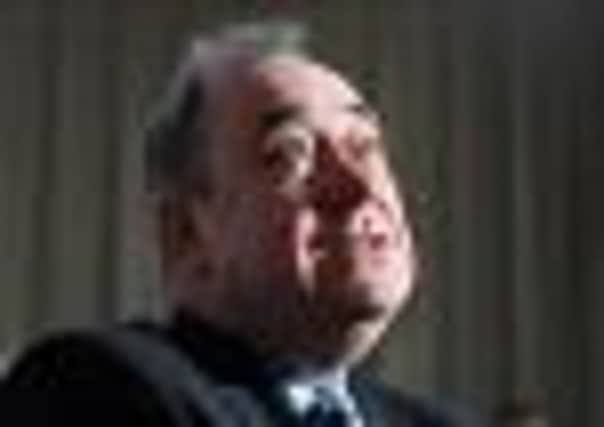Inside politics: Salmond seems to want his cake and eat it with a campaign that blurs the concept of independence


A new poll by the authoritative British Social Attitudes Survey, out last week, “showed that independence was now the most popular option”. The crowd roared their approval. Why wait until 2014, you might ask?
It is more complicated. The mammoth study put backing for independence at 32 per cent, behind support for devolution, at 58 per cent. But as well as the straight question on independence, the survey also asked people where they thought government decisions should be made; Holyrood, Westminster, or a mix of the two.
Advertisement
Hide AdAdvertisement
Hide AdCrucially, the word “independence” wasn’t mentioned. Lo and behold, the statement “the Scottish Parliament should make all decisions” was backed by 43 per cent, up from just 28 per cent a year before – and the highest scoring figure. Hence Mr Salmond’s bold claim.
The findings of the survey give room both for optimism and reflection in the pro-independence camp. The rise in support for a fully-empowered Scottish Parliament is an obvious plus. By contrast, backing for the status quo option – where the UK government decides taxes and benefits – now stands at just 21 per cent and falling. That is a big lead.
The downside is the obvious point that, once the explicit word “independence” is thrown into the mix, it appears that many Westminster-phobic Scots suddenly have second thoughts. It points to an old truth about voters. There are some, like those in Princes Street Gardens on Saturday, who will happily choose independence over the Union, no problem.
But there are plenty of others who, just like people who want both lower taxes and higher spending, would like independence and the Union. The problem for the Nationalists is that, at present, polls suggest that once the choice between the two is made explicit, most plump for the latter.
As Mr Salmond noted this week, “a lot is going to depend” on how these voters decide to go over the coming two years. Hence the attempt by the Nationalists to show that such a stark in-out choice doesn’t really exist.
More talk on the “Social Union” can soon be expected, with further details on how the SNP would envisage sharing institutions with the remainder of the United Kingdom (rUK) to be expected. And the message will be rammed home that independence is simply a transfer of political powers from Westminster to Holyrood.
The politics also explains a comment by one senior Nationalist figure last week. One of the pro-Union camp’s key slogans for its campaign is that sticking with the UK will provide: “The Best Of Both Worlds.”
A pity we didn’t get there first, this person declared. Both sides know what people want. Now it is a question of framing their messages to meet it.